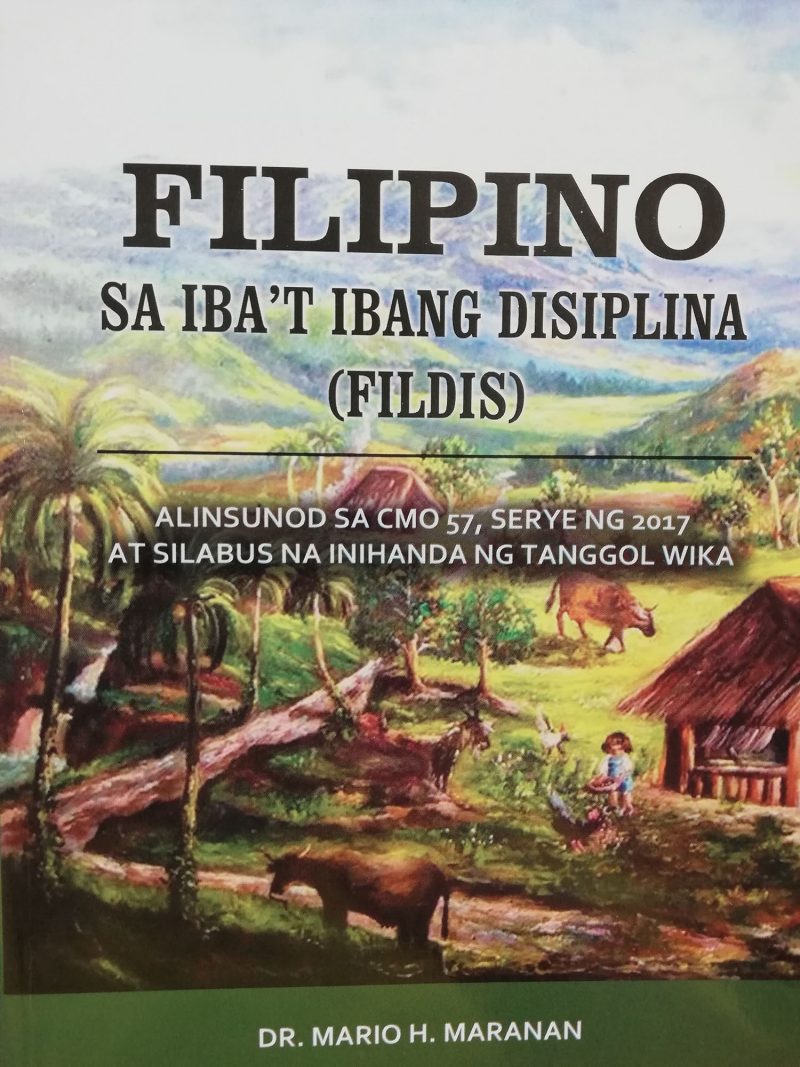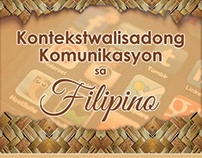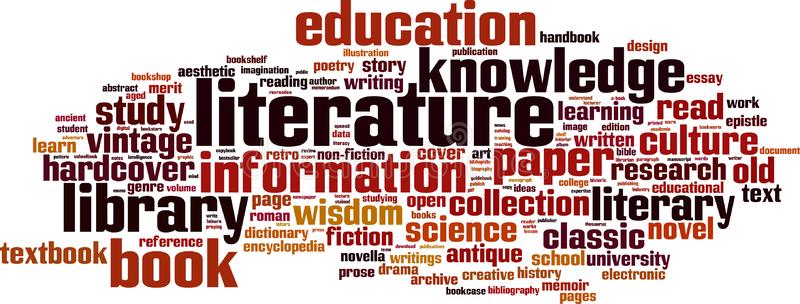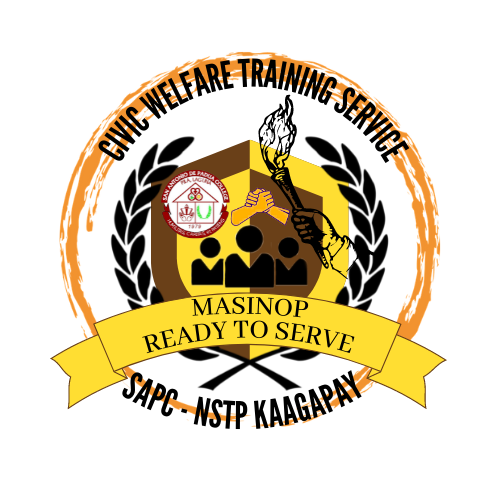Art
appreciation is a three-unit course that develops students’ ability to
appreciate, analyze, and critique works of art.
Through interdisciplinary and multimodal approaches, this course equips
students with a broad knowledge of the practical, historical, philosophical,
and social relevance of the arts in order to hone students’ ability to
articulate their understanding of the arts.
The course also develops students’ competency in researching and curating
art as well as conceptualizing, mounting, and evaluating art productions.
The course aims to develop students’ genuine appreciation for Philippine arts by providing them opportunities to explore the diversity richness and their rootedness in Filipino culture.
Credits: 3 units Pre-requisites: None No. of Hours: (3 hours per week) 54 hours.
Schedule: 8:00 - 9:30 Wednesday/Friday
Ethics
deals with principles of ethical behavior I modern society at the level of
person, society and in interaction with the environment and other share resources.
Morality pertains to the standards of right and wrong that an individual originally picks up from the community. He course discusses the context and principles of ethical behaviour in modern society at the level of the individual, society and in interaction with the environment and other shared resources. The course also teaches students to make moral decisions by using dominant moral frameworks and by applying a seven-step moral reasoning model to analyze and solve moral dilemmas.
The course is organized according to the three (3) main elements of the moral experience: (a) agent, including context-cultural;, communal, and environmental; (b) the act; and (c) reason or framework (for the act).
The course include mandatory topic on taxation
Credits: 3 units Pre-requisites: None No. of Hours: (3 hours per week) 54 Hours
Schedule: 4:30 - 6:00 Wednesday/Friday
Ang FILDIS ay isang praktikal na kursong
nagpapalawak at nagpapalalim sa kasanayan sa malalim at mapanuring pagbasa,
pagsulat, at pananaliksik sa wikang Filipino sa iba’t ibang larangan, sa
konteksto ng kontemporaryong sitwasyon at mga pangangailangan ng bansa at ng
mga mamamayang Pilipino. Nakatuon ang kursong ito sa makrokasanayang pagbasa at
pagsulat, gamit ang mga makabuluhang pa nanaliksik sa wikang Filipino, bilang
lunsaran ng pagsasagawa ng pananaliksik (mula sa pangangalap ng datos at
pagsulat ng borador ng pananaliksik hanggang sa publikasyon at/o presentasyon
nito) na nakaugat sa mga suliranin at realidad ng mga komunidad ng mga
mamamayan sa bansa at maging sa komunidad ng mga Pilipino sa iba pang bansa.
Saklaw rin ng kursong ito ang paglinang sa kasanayang pagsasalita, partikular
sa presentasyon ng pananaliksik sa iba’t ibang porma at venue.
Bilang ng Yunit: 3 yunit Pre-requisite: KOMFIL.
Schedule: 4:30 - 6:00 PM
Synchronous: Tuesday
Asynchronous: Thursday

Ang KOMFIL ay isang praktikal na kursong nagpapalawak
at nagpapalalim sa kontekstwalisadong komunikasyon sa wikang Filipino ng mga
mamamayang Pilipino sa kani-kanilang mga komunidad sa partikular, at sa buong
lipunang Pilipino sa pangkalahatan. Nakatuon ang kursong ito sa makrokasanayang
pakikinig at pagsasalita, gayundin sa kasanayan sa paggamit ng iba’t ibang
tradisyonal at modernong midya na makabuluhan sa kontekstong Pilipino sa iba’t
ibang antas at larangan.
Bilang ng Yunit: 3 yunit

The
course deals with interactions between science and technology and social, cultural,
political, and economic contexts that shape and are shaped by them. This interdisciplinary course engages
students to confront the realities brought about by science and technology in
society. Such realities pervade the
personal, the public, and the global aspects of living and are integral to
human development. Scientific knowledge
and technological development happen in the context of society with all its
socio-political, cultural, economic, and philosophical underpinnings at
play. This course seeks to instill reflective
knowledge in the students that they are able to live the good life and display
ethical decision-making in the face of scientific and technological
advancement.
This course includes mandatory topics on climate change and environmental awareness.
Credits: 3 Pre-requisites: None No. of Hours. (3 hours per week ) 54 hours
Schedule: 3:00 - 4:30 Tuesday/Thursday
- Teacher: Amorfina Balatibat Suyosa
Different methods and techniques in facilitating
and officiating team sports. Fundamental sports in any two sports such as in
volleyball, softball, basketball, athletics, and other Philippine games,
playing rules are analyzed more effective playing of the sports.
Credit: 2 units Number of hours per week: 2 hours Pre-requisite: PE 1
Schedule: 2:00 - 3:00 Monday/Wednesday
The course covers the different terms of communication used in business transactions. Students are taught to prepare business reports, memoranda, business proposals, minutes of the meeting, economic briefs, and executive summaries. Formal styles of communication are also covered in the course.
Prerequisite: none ; Credits: 3 units; Number of hours: 3 hours per week (54 hours)

This course introduces the students
to the contemporary world by examining the multifaceted phenomenon of
globalization. Using the various
disciplines of the social sciences, it examines the economic , social,
political, technological, and other transformations that have created an
increasing awareness of the interconnectedness of people and places around the
globe. To this end, the course provides
an overview of the various debates in global governance, development, and
sustainability. Beyond exposing the
student to the world outside the Philippines, it seeks to inculcate a sense of
global citizenship and global ethical responsibility.
This course includes mandatory topics on population education in the context of population and demography.
Credits: 3 units Pre-requisites: None No. of Hours: (3 hours per week) 54 hours
Schedule: 8:00 - 9:30 Tuesday/Thursday

This is a survey of the greatest masterpieces (magnum opus) of literature from all over the world with representative readings from various places and various time periods.
Credits: 3 units Pre-requisites: None No. of Hours: (3 hours per week) 54 hours

